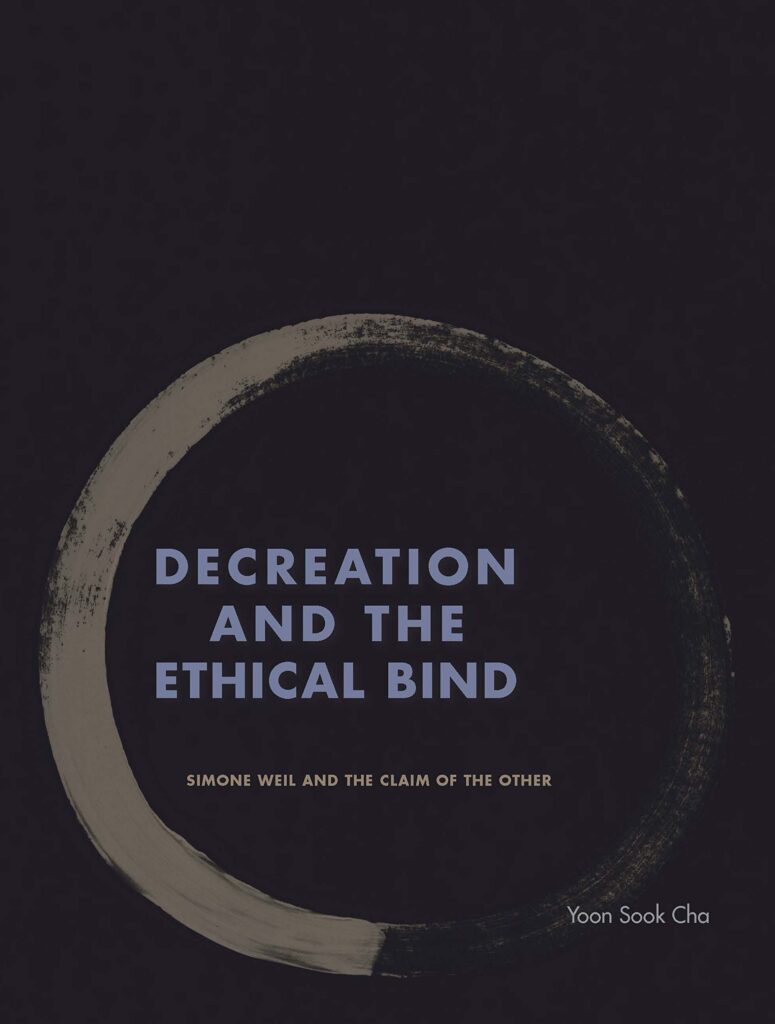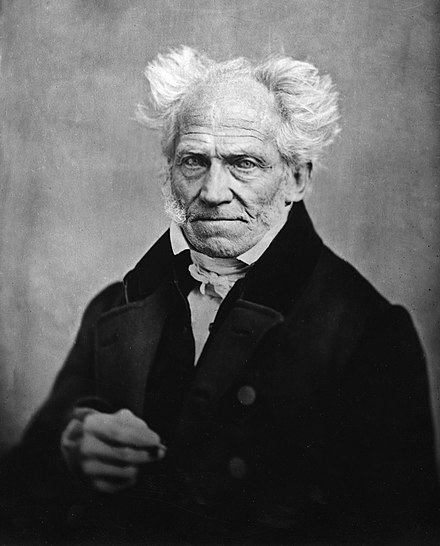Decreation and the Ethical Bind: Simone Weil and the Claim of the Other
Mario Von Der RuhrDecreation and the Ethical Bind: Simone Weil and the Claim of the Other. By YOON SOOK CHA. New York: Fordham University Press. 2017. xviii+193 pp.
In La Pesanteur et la grâce (Paris: Plon, 1947), Simone Weil observes: ‘Nous ne possédons rien au monde — car le hasard peut tout nous ôter — sinon le pouvoir de dire je. C’est cela qu’il faut donner à Dieu, c’est-à-dire détruire’ (p. 35). [“We possess nothing in the world- a mere chance can strip us of everything- except the power to say ‘I’.” That is what we have to give God — in other words, to destroy.”]

Yoon Sook Cha’s monograph provides an insightful and extended meditation on this remark. More specifically, it examines Weil’s notion of décreation and its place in a theistic ethic that combines belief in absolute value with the recognition of unconditional obligations towards our fellow men. But what, exactly, is involved in the ‘destruction’ of the self? How does the latter open up a path to the (suffering) other, to the other’s reality and preciousness? May our moral obligation to prevent harm to others not transcend the contingencies that limit our capacity to do so, including our own vulnerability to force? Indeed, is a decreative ethic practicable or even desirable?
In addressing these questions, Cha also seeks to ‘establish a place for Weil in ethics, philosophy, and literature that links her thought to Emmanuel Levinas, Maurice Blanchot, and Judith Butler’ (p. 6). This interdisciplinary approach not only yields a rich harvest as far as our understanding of Weil’s thought is concerned, but mirrors her own method of inquiry. For, as Cha rightly observes, ‘Weil moves willfully and unhesitatingly between philosophy, theology, and poetics, with a total disregard for teleology and disciplinary boundaries’ (p. xi). Closely connected with this point is Cha’s advice that readers should expect ‘contrapuntal strains’ and unresolved paradoxes in Weil’s work, and the absence of any normative ethical theory.

Cha’s study focuses on texts produced during the last four years of Weil’s life, viz. 1939-43, including ‘L’Iliade’ ou le poème de la force; the unfinished play Venise sauvée; various essays and letters collected in Attente de Dieu, Pensées sans order concernant l’amour de Dieu, and Écrits de Londres et dernières lettres; hitherto unpublished letters from the Weil archives at the Bibliothèque nationale de France, and Weil’s notebooks (e.g. La Connaissance surnaturelle). The author’s reading of these texts is nuanced and contains perceptive observations on, among other things, the ethical significance of vulnerability to force, supplication as a response to power, moral obligation, and betrayal, and the implications of Weil’s understanding of divine creation—as a renunciation of power—for a decreative ethic.

I think that, while Cha’s point that a considerable amount of Weil scholarship ‘has been problematically entrenched in Christian and sometimes hagiographical exposition of her thought’ (p. 154) is well taken, the Christocentric orientation of her ideas remains essential for understanding her concept of moral obligation and, by implication, the grammar of the reality of others. Thus, when Cha claims that ‘an ethical relationship to the other emerges from a common vulnerability to force, need, and destitution’ (p. 2), and that unconditional obligations are created precisely by this vulnerability, thinkers such as Schopenhauer and Camus would concur, even though their respective world-views are anything but theocentric. Is Weil’s notion of compassion no different from that of an existentialist humanist? Further, Cha rightly reminds us that ‘La vulnérabilité des choses précieuses est belle parce que la vulnérabilité est une marque d’existence’ (La Pesanteur et la grâce, p. 125) [‘The vulnerability of precious things is beautiful because vulnerability is a mark of existence’], but then the analogous preciousness of human beings requires elucidation, especially if these are not to be viewed merely as instances of vulnerability; this would be just as much a caricature of their preciousness as Kant’s description of moral harm in terms of violating rationality in another. These critical addenda notwithstanding, Cha shows that, at the very least, a decreative ethics may open up ‘a fragile passage to the other’ (p. 149).

Dr. Mario Von Der Ruhr is an Honorary Senior Lecturer, Faculty of Humanities and Social Sciences at Swansea University and serves on Attention’s advisory board.
This book review originally appeared in the Modern Language Review: vol. 113, part 3 (July 2018), pp. 662-663; reprinted with permission.
1 Recommendation
